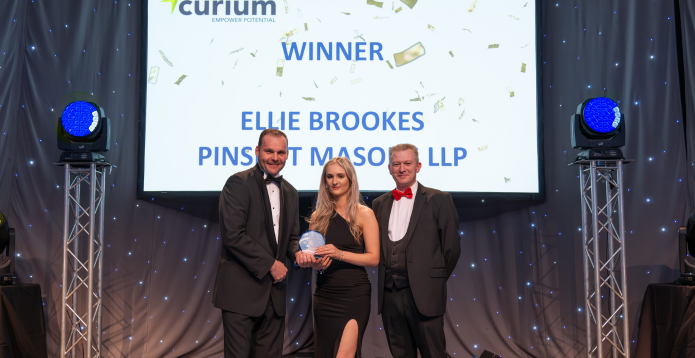
Less Stress is Best for Success! Create Better Work by Reducing Stress
For generations, stress has been assumed to be a necessary evil of work, and more ‘traditionally successful’ professions such as law, are presumed to bring with them extra stress as a norm. However, attitudes are changing towards stress across all sectors and for good reason.
What Is Stress?
Before we can address stress, we need to define what it actually is. Stress according to the Mental Health Foundation defines stress as ‘our body’s response to pressures from a situation or life event…some common features of things that can make us feel stress include experiencing something new or unexpected, something that threatens your feeling of self, or feeling you have little control over a situation.’
Stress is a biological hangover of our ancestors; a reaction to our situations or surroundings, producing a ‘flight or fight’ response, essential for survival in the wilderness. Stress helped us recognise whether we were in danger and to react accordingly.
In modern times, when we talk about stress, we aren’t referring to being in immediate physical danger to our lives, but rather the feelings we may experience in certain high-pressured situations, such as work.
How Do We Deal With Stress?
Everyone encounters stress on a daily basis. Sometimes, it’s necessary and unavoidable such as closing a vital deal. However, it’s important to differentiate between manageable, short-term stress and the excessive, life-affecting stress which can result in physical, emotional and social complications.
Recent figures from the Health and Safety Executive reported that ‘legal professional’ was the third most stressful job in the UK last year, with the main cause of stress cited as workload, with women experiencing more stress than men. This is perhaps no surprise to those within the industry.
The legal industry is still one of the most outdated and rigid in its approach to work. Many work-life balance promoting schemes and initiatives, such as agile or flexible working, since considered the ‘norm’ in other sectors, are still seen as maverick within law. A big factor in its resistance to embracing work life balance and thereby reducing stress is most probably to do with tradition; the pedestal of making partner and the accompanying dogma that a few years of overworking is a rite of passage to reach it.
Stress in the Extreme
Overworking though, isn’t something our industry should just accept as a part of legal life. By overworking ourselves in a job and normalising this behaviour, we are entrenching it deeper into the legal industry culture.
The results of overworking over long periods of time are well-documented; excessive stress from work can lead to mental issues such as depression, fatigue and manifest as physical health complications; such as strokes or heart disease. In extreme cases, it can lead to death.
Japan has had a culture of extreme overworking since the 1980’s and recent statistics show that 1 in 5 are at risk of death from overwork. They even named it ‘karoshi’; death through overwork. Although hundreds die every year, the Government and employers have been very slow to respond. Empirical evidence even shows that overworking is also counterproductive and work quality suffers as a result, yet this toxic culture remains prevalent.
Effects of Stress on Productivity
So, we know that stress can have devastating effects on our health and mental wellbeing, but it is also detrimental to our quality of work too; which in turn can lead to even more stress.
Stress can affect your memory recall and your ability to focus on a task; this can affect your ability to carry out your work duties. This poor performance could lead to further stress; it can be a vicious cycle.
Mounting stress also has a negative effect on sleep which can also have an effect on your concentration levels at work. Sleep depravity brings along its own issues too.
Make a Change
Although we as individuals cannot change a culture which creates stress, we can change our own careers and reduce the stress we face. Many individuals have recognised this and placed higher value on quality of life rather than chasing the best salary. Legal professionals signing up to Vario for example, typically value a better work life balance, or creating more time for family or to pursue a personal passion. Others are motivated by the opportunity to work in different industries or at a more relaxed pace of life.
We at Vario have found more and more lawyers, paralegals and other legal professionals exploring different career options which allow them to both live their desired lifestyle and also generate income to sustain it. Our Varios run seasonal businesses of their own, travel the globe, spend time with their family, all while still further developing their career in law.
The Future of Work
Our Varios are part of a larger paradigm shift; one which understands that work is necessary but not at the cost of a balanced life. Businesses are coming round to the idea that excessive workloads and the accompanying stress cannot be prioritised ahead of employee wellbeing. Reinforcing this need for better work life harmony, various employee surveys regularly cite better work life balance, flexible hours and the ability to work from home as top benefits for a job to improve happiness. This, coupled with the rise in the ‘gig economy’, mean that traditional jobs and freelancing are starting to converge, as employees become more empowered to demand healthier working lives. And we definitely think that’s a good thing.
Latest blogs

Award-Winning Apprenticeships
Discover what it's like to do a paralegal apprenticeship with Pinsent Masons Vario

CLM support in practice
Discover how Vario's Consulting: Process & Technology team help clients with their Contract Lifecycle Management
